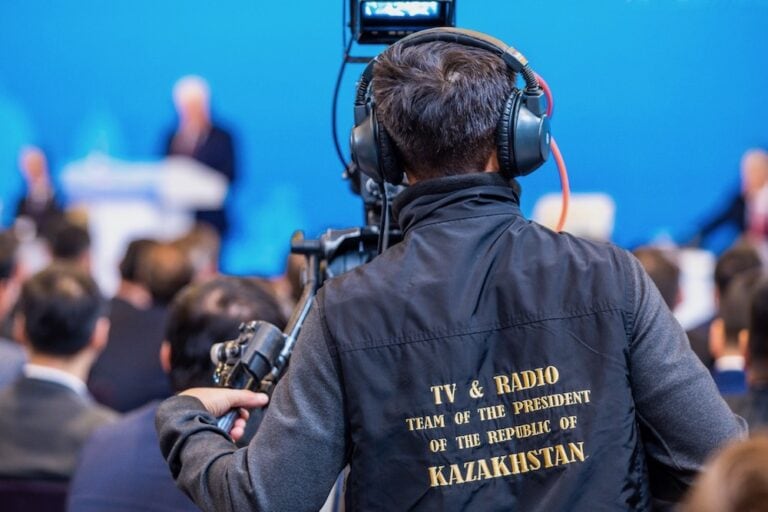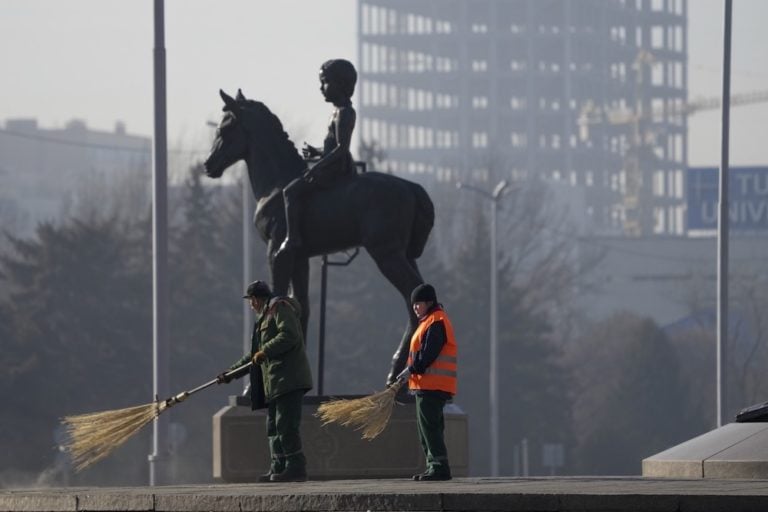(Freedom House/IFEX) – The following is a 25 October 2007 Freedom House press release: Freedom House Condemns Kazakh Government’s Blocking of Websites; Censorship in Direct Contradiction to OSCE Chairmanship Bid Kazakhstan’s blocking of four opposition websites is part of a broader pattern of press repression in that country and serves as another example of the […]
(Freedom House/IFEX) – The following is a 25 October 2007 Freedom House press release:
Freedom House Condemns Kazakh Government’s Blocking of Websites; Censorship in Direct Contradiction to OSCE Chairmanship Bid
Kazakhstan’s blocking of four opposition websites is part of a broader pattern of press repression in that country and serves as another example of the unsuitability of the government of Nursultan Nazarbayev for leadership of the Organization for Security and Cooperation in Europe (OSCE) at this time. The closures of these websites have been linked to their publication of transcripts of telephone conversations alleged to involve senior government officials.
The following websites were blocked for approximately three days during the week of 22 October 2007: kub.kz, zonakz.net, geo.kz and inkar.info, all of which take an opposition or non-regime line. This sort of blocking activity happens on a periodic but regular basis in Kazakhstan, especially with kub.kz sites. The authorities deny being behind the blockages but the shutdown fits the earlier profile of such blocking by government.
All of the websites that were blocked in the current case have recently run stories about apparent official efforts to silence Rakhat Aliev, the now estranged former son-in-law of President Nursultan Nazarbaev. Recently, Aliev accused President Nazarbaev of directly ordering the murder of opposition leader Altynbek Sarsenbaev in February 2006.
“The Kazakh authorities’ censoring of these websites is directly at odds with basic press freedom principles and Kazakhstan’s commitments as a member of the Organization for Security and Cooperation in Europe,” said Freedom House executive director Jennifer Windsor.
The website shutdown is part of a broader pattern of anti-democratic behavior by the Kazakh authorities, which calls into doubt the country’s fitness for the leadership of the OSCE, whose chairmanship Kazakhstan is actively pursuing.
Kazakhstan has also supported Russian initiatives to sharply circumscribe OSCE election monitoring in the states of the former Soviet Union. The proposed initiatives, whose content is already limiting prospects for monitoring of Russia’s upcoming Duma elections on December 2, would effectively render meaningless the election monitoring efforts.
“Kazakhstan should actively oppose any initiatives that would gut the substance of the OSCE’s important election monitoring standards,” Ms. Windsor said. “The United States and other democracies should make support of the OSCE’s election monitoring work a bottom line condition for any country that seeks the organization’s chairmanship.”
The OSCE chairman-in office represents the organization and coordinates all OSCE activities. With 56 participating states from Europe, Central Asia and North America, the OSCE forms the largest regional security organization and has on its agenda a wide range of issues, including human rights and democratization.
Kazakhstan ranks Not Free in Freedom of the Press, Freedom House’s annual survey of global media independence. Kazakhstan also ranks as Not Free in Freedom in the World. The country received a 6 (on a scale of 1 to 7, with 7 as the lowest) for political rights, and a 5 for civil liberties.


